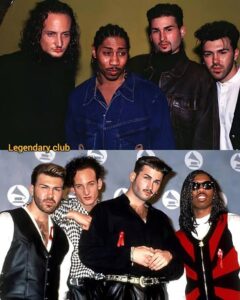
Former Michigan Football Players File $50 Million Lawsuit Against NCAA and Big Ten Network Over NIL Rights
By Mike Scarcella
In a significant legal development that could reshape the landscape of college athletics, four former University of Michigan football players have filed a class-action lawsuit against the National Collegiate Athletic Association (NCAA) and the Big Ten Network. The plaintiffs—Denard Robinson, Braylon Edwards, Mike Martin, and Shawn Crable—are seeking $50 million in damages, alleging unauthorized use of their names, images, and likenesses (NIL) for commercial purposes without compensation.
—
Background of the Lawsuit
Filed in the U.S. District Court for the Eastern District of Michigan, the lawsuit contends that the NCAA and Big Ten Network “have systematically exploited these iconic moments” created by the players during their collegiate careers. The plaintiffs argue that their performances were used in advertisements, broadcasts, and merchandise sales without their consent, violating their rights and depriving them of rightful earnings.
The legal action focuses on athletes who played before 2016, a period during which the NCAA prohibited players from profiting off their NIL. This restriction was lifted in 2021, allowing current athletes to monetize their personal brands. However, former players like Robinson and Edwards claim they were unjustly excluded from these opportunities, despite their contributions generating substantial revenue for the NCAA and affiliated networks.
—
Plaintiffs’ Profiles
Denard Robinson: A dynamic quarterback for Michigan from 2009 to 2012, Robinson was known for his electrifying plays and holds multiple school records.
Braylon Edwards: A standout wide receiver from 2001 to 2004, Edwards won the Biletnikoff Award in 2004, recognizing him as the nation’s top receiver.
Mike Martin: A dominant defensive lineman who played from 2008 to 2011, Martin was a key figure in Michigan’s defense during his tenure.
Shawn Crable: A formidable linebacker from 2003 to 2007, Crable was known for his leadership and impactful plays on the field.
These players assert that their athletic achievements significantly contributed to the popularity and financial success of college football broadcasts and merchandise, yet they received no compensation for the continued use of their NIL post-graduation.
—
Legal Arguments and Objectives
The lawsuit alleges that the NCAA and Big Ten Network’s actions constitute ongoing violations of U.S. antitrust laws. The plaintiffs seek not only monetary damages but also an injunction to prevent further unauthorized use of their NIL. They argue that the NCAA’s historical restrictions on athlete compensation were not only unfair but also illegal, and that the organization should be held accountable for past transgressions.
Attorney Jim Acho, representing the plaintiffs, emphasized the broader implications of the case, stating, “The NCAA knew for decades that preventing players from monetizing the one thing of value they have—their name—was wrong and unlawful. Today they recognize that players should have that right. But what about all the past players who were unlawfully denied that right?”
—
NCAA’s Position and Broader Context
The NCAA has declined to comment on the lawsuit. However, this legal action comes amid a series of challenges to the NCAA’s amateurism model. In May 2024, the NCAA agreed to a $2.8 billion settlement to resolve multiple antitrust lawsuits, covering athletes who played from 2016 onward. The Michigan lawsuit seeks to extend similar considerations to players who competed before this cutoff.
The case also follows the precedent set by the O’Bannon v. NCAA decision, where the court ruled that the NCAA’s restrictions on athlete compensation violated antitrust laws. This ruling has paved the way for further scrutiny of the NCAA’s policies and has emboldened former athletes to seek redress for past grievances.
—
Implications for College Athletics
If successful, this lawsuit could have far-reaching consequences for the NCAA and its member institutions. It may open the door for other former athletes to file similar claims, potentially leading to substantial financial liabilities and a reevaluation of the NCAA’s approach to athlete compensation.
Moreover, the case underscores the evolving landscape of college sports, where the line between amateurism and professionalism continues to blur. As athletes gain more control over their personal brands, institutions may need to adapt to a new paradigm that balances tradition with the rights and interests of the players.
—
Conclusion
The lawsuit filed by former Michigan football players represents a pivotal moment in the ongoing debate over athlete compensation in college sports. By challenging the NCAA’s historical practices, the plaintiffs seek not only personal restitution but also systemic change that acknowledges and rectifies past injustices.
As the case progresses, it will likely serve as a bellwether for similar actions and could significantly influence the future of collegiate athletics. The outcome may determine how institutions honor the contributions of former athletes and navigate the complex interplay between tradition, legality, and fairness in the modern era of sports.







